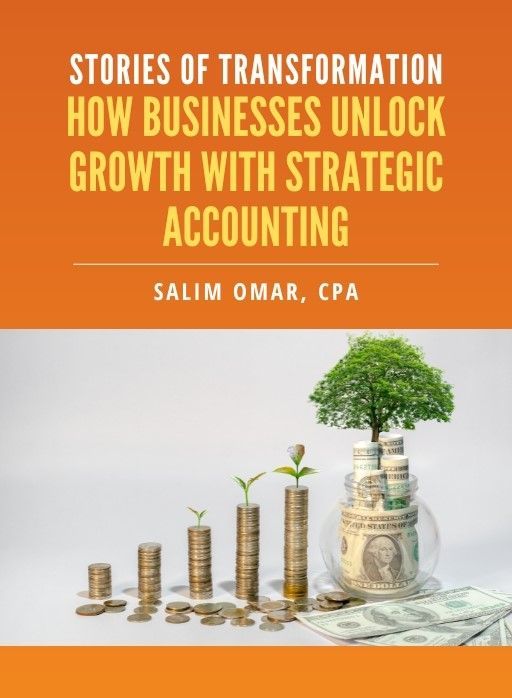From Hobby to Business: When Your Side Hustle Needs a CPA

There’s nothing more exciting than watching your passion project start generating real income. What started as a weekend gig or a fun hobby—making jewelry, designing digital prints, selling candles, or freelancing online—suddenly turns into deposits you can’t ignore. But with that extra cash comes a mountain of questions. Is this still a hobby? Do you owe taxes on this money? Should you form an LLC? And most importantly, when does it make sense to bring in a Certified Public Accountant (CPA)?
Here’s the truth: if you’re making money consistently, you’re not just a hobbyist anymore. You’re running a business. And when money’s involved, the IRS starts paying attention. Straight Talk CPAs has seen far too many creative entrepreneurs get blindsided by taxes, penalties, and accounting messes—simply because they didn’t know when to ask for help.
So, how do you know when it’s time to hire a CPA for your side hustle? Let’s break it down.
Is It Still a Hobby or a Business?
The IRS doesn’t care how much you love what you do. If you’re making money and treating your gig like a business—even informally—they might decide you are a business. That shift changes everything.
According to the IRS, a “hobby” is something you do for fun, not for profit. A “business” is something you do with the intention of making money. If you’re regularly:
- Marketing your work
- Taking payments through apps or platforms
- Working with repeat customers
- Keeping track of expenses
- Or even reinvesting in tools and materials
You’ve crossed into business territory.
And here’s the catch: businesses are taxed differently than hobbies. With hobbies, you can’t deduct your expenses. With a business, you can—but only if you’re doing things right. This is where a CPA becomes your secret weapon.
Red Flags That It’s Time to Call a CPA
If any of these scenarios sound familiar, you shouldn’t wait until tax season to get professional help.
1. You Made Over $400 from Freelancing or Contract Work
If you’ve earned $400 or more from self-employment in a year, you’re expected to file a Schedule C and pay self-employment tax. That’s in addition to your regular income taxes.
It might not sound like much, but between federal, state, and self-employment taxes, you could be looking at a 25–35% tax bill. A CPA can help reduce that hit through smart planning.
2. You Received a 1099-NEC or 1099-K
Platforms like Etsy, Uber, DoorDash, and PayPal report your earnings directly to the IRS once you hit certain thresholds. If you received a 1099, the IRS already knows about your income. Failing to report it properly? That’s a recipe for penalties.
3. You Have Business Expenses You Want to Deduct
Buying supplies, using your car, paying for software, hiring contractors—these are potential deductions. But they come with rules. Misreport them, and the IRS may flag your return.
A CPA helps you:
- Track and
categorize expenses correctly
- Maximize your legal deductions
- Avoid red flags that trigger audits
4. You’re Not Sure What You Owe (or When)
One of the biggest shocks for side hustlers is realizing taxes aren’t being withheld. If you’re not paying estimated quarterly taxes, you might end up with a big surprise and a penalty come April.
CPAs map out what you owe and when to pay it, so you’re never caught off guard.
Why a CPA Is More Than Just a Tax Preparer
Sure, you can use tax software or wait until the last minute. But a good CPA does much more than fill out forms. They’re strategic partners who can:
- Help you choose the right business structure (sole proprietor, LLC, S-Corp)
- Create a recordkeeping system so tax time isn’t a nightmare
- Plan for growth with real financial insights
- Protect you during an audit or any IRS issues
Think of a CPA as the financial coach for your side hustle. They see the big picture—and help you make smart decisions before things get messy.
Real-Life Example: From Soapmaker to Six-Figure Seller
A handmade soap seller started out selling a few bars at local markets. Within a year, she had a booming Etsy shop and thousands in sales. She waited too long to hire a CPA and ended up with a $9,000 tax bill—plus penalties for underpayment.
After finally getting professional help, her CPA set her up with quarterly tax payments, helped her form an LLC for liability protection, and showed her how to track expenses in QuickBooks. The following year? She not only avoided another tax mess but also saved over $4,500 through smart deductions.
That’s the power of having the right financial guidance at the right time.
Still Not Sure? Here’s a Quick Test
If you answer “yes” to any of these, it’s time to talk to a CPA:
- Are you earning more than $400/year from your side gig?
- Did you get a 1099 form?
- Do you plan to grow your income stream?
- Are you reinvesting profits back into your side hustle?
- Do you feel overwhelmed by taxes or finances?
If that’s you, you’ve got more than a hobby on your hands. You’ve got a business. And businesses need smart financial oversight.
Final Thoughts: Protect Your Profits, Don’t Gamble With Taxes
Side hustles are exciting. They offer freedom, income, creativity—but they also come with financial responsibility. The IRS doesn’t give breaks for “just figuring it out.” And guessing your way through taxes can lead to serious consequences.
Straight Talk CPAs helps freelancers, creators, and entrepreneurs take their side gigs seriously—without the stress. Whether you’re just starting or scaling fast, don’t wait for a tax-time panic to realize you need help.
Because a little financial clarity now? That’s what turns a fun project into a sustainable, profitable business.
Free eBook:
Stories of Transformation


Salim is a straight-talking CPA with 30+ years of entrepreneurial and accounting experience. His professional background includes experience as a former Chief Financial Officer and, for the last twenty-five years, as a serial 7-Figure entrepreneur.




